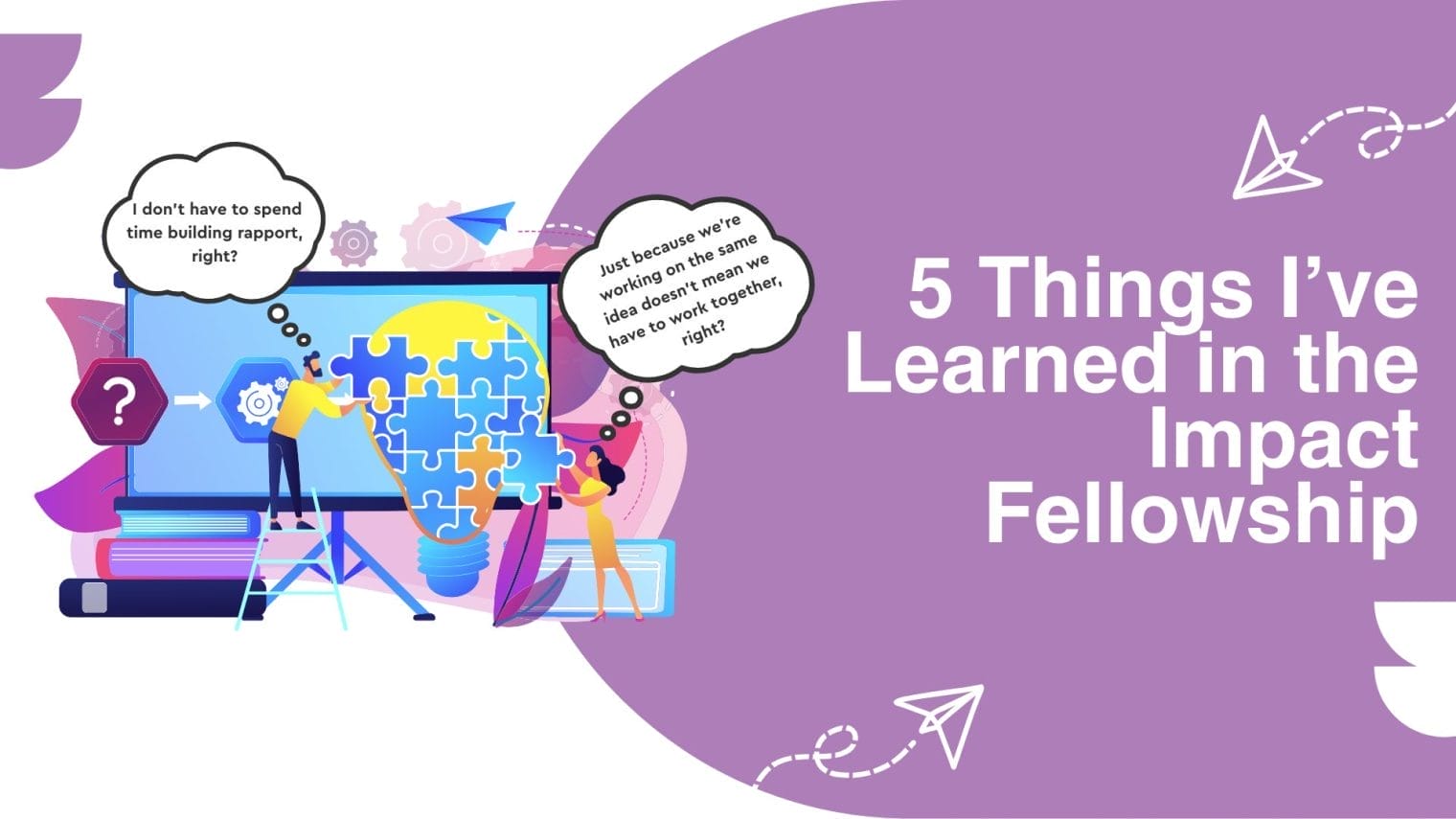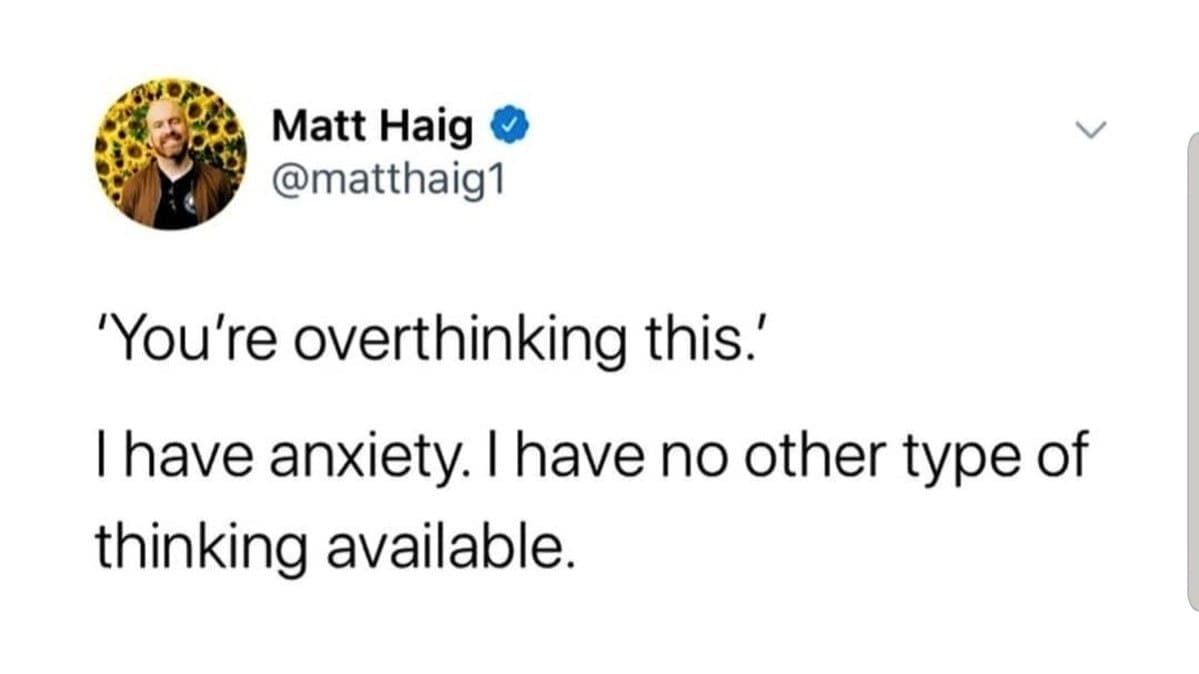For those of you who don’t know, I’m in curaJOY’s impact fellowship. We are creating an annotated data set, algorithm, and intervention system for cyberbullying. It will be the first one of its kind made 100% by gen z. Our hope is that with our lived experience of the modern world, we will be able to create an AI model more accurate at catching harassment online. Being in this fellowship was certainly an experience that changed me for the better, and gave me a glimpse into what the professional world is like. These 5 things are the most important facts I’ve learned since my time here. I’m putting them up as a reminder to myself, and potentially a guide for other young students about to go into the professional workforce as well.
(1) In order to work together, you have to have a connection with your coworkers. This is especially hard in digital environments.
Gen Zers, ever wonder why some people didn’t like working from home? I did too. I wondered “Sure, it may suck that I can’t go outside and hike anymore and most of my activities now are reduced to browsing because of the pandemic, but I really like the fact that I don’t have to move to go to school/work! Why do people miss driving to work?” The answer is: connections. Believe it or not, people sometimes actually like the people they work with. They’re colleagues and in contact nearly every single day, so it makes sense that they’ve built up some tolerance to each other, otherwise they’d go crazy. But most of the time, people have at least one friend at work. Potentially really close friends, the kind you’d go out to get food with to congratulate on a promotion, or the kind that you’d visit to see your coworker’s new baby. Believe it or not, developing a friendship with your work colleagues is actually beneficial in a professional way. Why? Because the people who know you better often have more motivation to help you. Think about it, if you had some free time and two people came to you for help, which one would you aid, the person you barely know that sometimes talks to you, or the colleague that you talk to on a daily basis? Additionally, people who have a connection with each other often communicate more effectively than people who don’t. Lots of times, as I’ve learned, you can’t skip over the icebreaker and jump right into work. You have to build rapport with the person you’ll be working with. It may seem unnecessary, but it will help over the long run. See the previous 5 sentences for the reason why. Sadly, building a relationship with a person over digital technology is much more difficult. Texting is asynchronous (especially if everyone is on different timezones), meetings where you can see and hear each other are limited, and even then with those meetings, you often only see the front half. This can lead to a disorganized group dynamic, where everybody is doing their own thing because they never bothered to tell other people. Because people don’t know each other, they’re less inclined to help each other, or to contribute to group tasks. My in person friends will usually do what I ask them to do, even when it’s slightly inconvenient to them. But before I built rapport with any of the impact fellowship members, none of us would work together, either because we were too scared to ask or because we decided to deprioritize the fellowship because we didn’t really know the people on it.
(2) Sometimes, meetings happen at wonky times
The earth has different timezones. What could be day for one person could be midnight for another. But people still have to work. And sometimes, when people from all over the globe have to have a zoom call meeting, the best time for everybody to meet up is the time where it’s not extremely early or late for any one person, but is super uncomfortable for all parties involved. With the Impact Fellowship, all of our members were in drastically different timezones. Our meeting was set up to be around 9-10 AM PST, but for me in Taiwan, that was around 11pm to 12am. I do not know how early or late it was for the other members, but I have no doubt in my heart that everybody in the impact fellowship was experiencing an extreme circadian rhythm disruption as well. It was tortuous for me to stay up that long, and many times I wished the meeting times would switch to more comfortable times for me, but that wouldn’t be fair for the other members of the fellowship. No one person can healthily stay up all night or morning long just to attend meetings. Besides, the people at the Impact Fellowship had other things to attend to. Wonky meeting times are scheduled the way they are not to make everyone suffer, but to make sure that everyone can be there without having to seriously disturb their sleep schedule or their day to day activities. So here’s my tip on dealing with wonky meetings: Make sure you get some sleep beforehand. When I was in Taiwan, I would go to bed earlier than I normally would, so I could at least get some recharge before having to wake up at 11pm. If you can’t get some sleep beforehand or don’t want to, drink caffeine. Or get some rubber band to flick yourself with. Mild pain and shock is usually a good adrenaline booster to wake up. However, while it’s not a good idea to be caught sleeping in the meeting, some level of moderation is required in these wake up strategies. Too much and you won’t be able to sleep at all.
(3) You have to have a solid plan of who is going to do what. Otherwise, no work gets done.
In my school, when group projects come up, there usually isn’t much drive from my tablemates on who does what. Typically, they sit there and ask each other “What do you want to do?”. It takes someone to assign them roles for them to start working on the project. A different concept applied to the Impact Fellowship, but it got similar results. When fellows (including me) had a complex task (such as making a slide show), but didn’t know who was going to do what, not a lot of work got done. We (or at least I) would all assume that everybody else had the same idea and roll with it. Create the slide template, choose the fonts, come up with a general order of what idea would be presented where in the slide show….only to find out that another fellow did work on a different idea. Keep in mind, we both spent time being productive, it just so happened that we were going in different directions and our actions contradicted each other’s. If we had talked to one another through the process, communicated “Okay, so I’m going to do this…. The template is going to be that….Hey, can you…..” Our efforts probably wouldn’t have been wasted in the first place. Just like a team of super heroes needing a plan to take down the bad guy, interns (and professionals) need a plan to divide and conquer complex tasks into more bite-sized ones. Once we coordinated with each other and decided who was going to do what, the process became mostly smooth sailing.
(4) Get help whenever you can
I know it goes against the creed of popular cool characters who are “too cool for help, I’ll figure it out myself” and I know I risk sounding exceedingly corny by saying this, but asking for help is not a sign of weakness. This is something I forget from time to time, so I will say it again. Asking for help is not a sign of weakness. It is an opportunity to grow. Sure, one could try to solve a problem completely alone and use trial and error to eventually find the solution, but asking for help will seriously cut down the time it takes to get a task done. Like an enzyme catalyzing a reaction and lowering the energy requirement to turn the reactants into products, asking for help makes things easier. You are your best advocate. Learn how to ask for help. Because if you don’t, the people around you will assume that you know what you’re doing, then become all the more irritated when they discover that you need help, but didn’t ask for it. Just like how it’s a better idea to admit to a mistake sooner than later, it’s a wise move to admit to needing help sooner rather than later. Not asking for help when you need it is like a snowball rolling down a hill. It starts out small, but as time goes on, it grows in size and consequence. Don’t wait until the snowball reaches its maximum speed and crashes down on someone’s head.
(5) Working together is hard. Unfortunately, it’s also necessary.
Besides being the DM (Dungeon Master, basically the person who controls the plot of a story and its environment) in the game Dungeons and Dragons (a role-playing combat game with a lot of rules), my only other intensive collaboration experiences were in the Impact Fellowship. Some of the people reading this may be surprised. Schools assign group projects! Shouldn’t kids have cooperation experience from those? Not really. School doesn’t truly teach collaboration anymore. First off, most assignments are solo, and even with a group task, all a person needs is a strong personality to force everybody in line. Either that, or the team projects take on a decentralized angle. Student A does slide A, student B does slide B, Student C does slide C, and each of them work on their own parts before finally stitching it together like a Frankenstein’s monster. Also like a Frankenstein’s monster, the end product tends to be very mismatched, with different line spacing, font size, organization, and sentence structure. Both approaches don’t work in the professional world. Using sheer force of personality to coerce everyone into following your lead results in people resisting and filing complaints about you, and taking on a decentralized approach leads to a messy final project, which won’t cut it by professional standards. But while I’m making it appear that collaboration is too hard, working alone is not much better either. No matter how talented an individual is, one human cannot do everything. There are limits. Even great leaders who seem to have it all, in reality, are standing above the crowd on the shoulders of many, many partners. With insurmountable tasks like what I’m doing at the Impact Fellowship, I need other people. I don’t have the skills to code, but I know fellows who do. I can’t stay up all night working for curaJOY, but I know others who can wake up and continue what I started while I’m sleeping. Like the symbiotic relationship between algae and coral, each of us as individuals probably couldn’t do the whole of the impact fellowship alone. But when collaborating together, we make a higher output and ultimately benefit each other in the end.




Leave a Reply